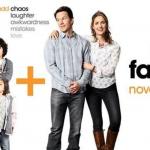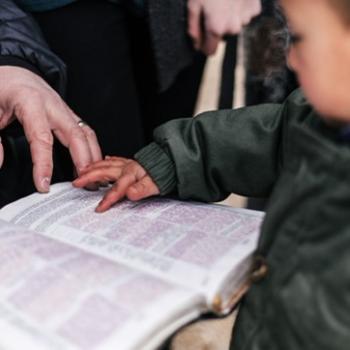The other day, I made a joke with my wife that TLC (The Learning Channel) should have the slogan: “TLC: We’ve Got the Weirdos with Lots of Kids”. Building on the well-known and extremely popular, 19 Kids and Counting, several more shows on TLC that highlight families with a culturally abnormal number of children have popped over the years. Though these families are often kind, enjoyable people, that’s not why they are on TV. People watch them because these large families have become the modern-day television equivalent to a traveling freak show. They’re different and that makes them interesting. Had such programming been available 100 years ago, I doubt a show themed about the daily life of a family with 10 kids would make the air. But with the size of families shrinking, they now strike the public’s chord of curiosity.
The global population, while still growing, has slowed its growth substantially in recent decades. Such information has been well documented. The latest report, published in Lancet and highlighted by the BBC, cites that since 1950 the global fertility rate (defined as the average number of children birthed in a lifetime to an individual woman) has dropped from 4.7 to 2.4. In western civilizations, such as the UK, they saw rates fall in the 1.7 range. This is worthy of some reflection.
Certainly, there are some valid reasons why someone might not have children. But in many cases these limits are self-imposed for personal choices and sexual preferences. In this article, I am speaking more towards these flourishing liberal ideologies, nestled comfortably within secular societies, that carry an aversion towards large families. I am not challenging those that want children and cannot have them. Nor am I faulting those who have no children because they have never been given the chance. For these, and those that have prayerfully decided children is not best for the life sitaution, my heart and sympathies are with you.
Live Free, Die Alone
The more secular the culture, the lower the fertility rate. When you remove God from a society, the children will go with him. Certainly, this is painting with a broad stroke; I admit that. But that also doesn’t make it untrue. While not the only factor to consider when assessing the trend of lower birth rates in modern secular societies, it’s difficult to get around – maybe impossible. After all, liberal ideologies are based upon the empowerment of the individual. A natural consequence of raising up the individual is the relinquishing of the community.
Vocal proponents of such liberal ideologies scarcely acknowledge their own philosophies are becoming a function of their own undoing. Irony intended, a child could look at the math and realize if your societies fertility rate is below 2.0, then the days of your worldview are numbered. It may take a few generations, but eventually these ideas will die with their advocates. You may live free, but you will probably die alone.
I genuinely wonder how can such a self-destructive paradigm become so self-celebrated and self-desired?
I suspect, this sort of introspective questioning is avoided because the answers, although obvious, are rather inconvenient. If forced to consider that one’s life desires and goals are also deliberate actions aimed at destroying one’s own posterity, it serves as a pretty big buzzkill for frivolous weekend plans. No one wants to hear that their individualistic, hedonistic lifestyle choices are self-destructive. So, most ignore the kind of macro-level thinking required to draw such conclusions and return their focus their attention to lattes and 401k’s. Children, after all, are an expensive distraction from personal goals.
Mic.com ran an article a few years ago aimed at better understanding why more and more millennials are choosing not to have children. Most of the answers are rather predictable. They cited financial reasons, population control, the physical toll of pregnancy on the body, the terrible state of the world, career goals and so on. But the capstone of the article is summed up with a quote. They write: “I don’t want kids because I just don’t. I shouldn’t have to explain my reasoning, or even have a reason at all: my body, my choice.” It is here we find the underlying sin and heart of the matter: a refusal to die to self.
Much of the reasoning millennials stated in the poll have some merit. Raising children is a burden. They are expensive. They often slow career goals. They do face a world much darker than the one I was brought into. But what they are missing is the return on their investment. These are burdens I gladly bear. For every ounce of sacrifice made for the betterment of my family, it is returned to me 1,000-fold in love, joy, and fulfillment. I gladly give my life, so that theirs may be preserved.
Marriage, families, children, and communities all require sacrifice. They are tools of sanctification and meant for our good – but they require hard work and dedication. Anyone who has children, or a healthy marriage, will acknowledge how these relationships radically change their worldview. Daily, you are asked to lay aside your personal preferences for the betterment of others. Sharing life necessitates you to think of others first. Your body ceases to become “your choice” and becomes an instrument of love.
Consider for a moment John 15:13, which says, “Greater love has no one than this, that someone lay down his life for his friends.” Christian or not, self-sacrifice for the sake of another is a virtuous act. Perhaps, only marriage demands more self-sacrifice than parenting. Put the two together, with a vision centered the emptying of one’s self, and you have a recipe for sanctification. Community makes us better people. Its valuable!
If I wake up on my 65th birthday bankrupt, destitute, and homeless, I would still count myself extraordinarily rich for having known and raised my 4 children. The lies about children, told in the name of secularization, will leave millions on their deathbed with full bank accounts and empty hearts. Who cares about the size of your house if you have no one with you to enjoy it?
I have never met a parent who looks back on their life and expresses regret for their children – regardless of the number. Yet, I have known many who reflect on their life (post-childbearing years) and wish they had more.
Community By Design
Laying aside the primary family unit for a moment, I will speak a bit more to the community. Humans, by design, thrive in a community. The people of God have known this for thousands of years. This concept is evident from the moment of creation. Consider God’s explanation in Genesis for creating Eve. He says, “It is not good that man should be alone” (Genesis 1:18).
From there, we see God make a covenant with His people and give them physical sign. In circumcision and baptism, not only we do find the sign to remind us of the vertical covenant with God, but it also serves as a horizontal reminder that we are all God’s people – united in Him. We belong to something bigger than us. Because of this, we must consider the weight of our choices today and how they affect future generations of God’s people.
In Genesis 22, after a demonstration of Abraham’s faithfulness to God, The Lord blesses him by promising to “multiply your offspring as the stars of heaven and as the sand that is on the seashore. And your offspring shall possess the gate of his enemies, and in your offspring shall all the nations of the earth be blessed, because you have obeyed my voice.” (v. 17-18). Abraham, while certainly concerned about his immediate family, was blessed with the promise of generations.
As mentioned above, the thread of irony in the dropping global birth rate is that a large contributing factor is the individual and their unwillingness to have kids – they are slowly weeding themselves out. While it may take generations, if nothing changes, their ideas will die with them. They will have no one to pass them on to. This is tragic.
I still genuinely wonder how anyone can assume this is the right type of worldview when it is so self-destructive?
For those of us in Christ, we must hold firm to the theology and worldviews passed down for thousands of years. Children are difficult, but they are also a true blessing. Having them will enrich, not just your life, but lives for many generations to come. Thankfully, by design, we still have the ability to pass our ideas to our children – take full advantage of it.













